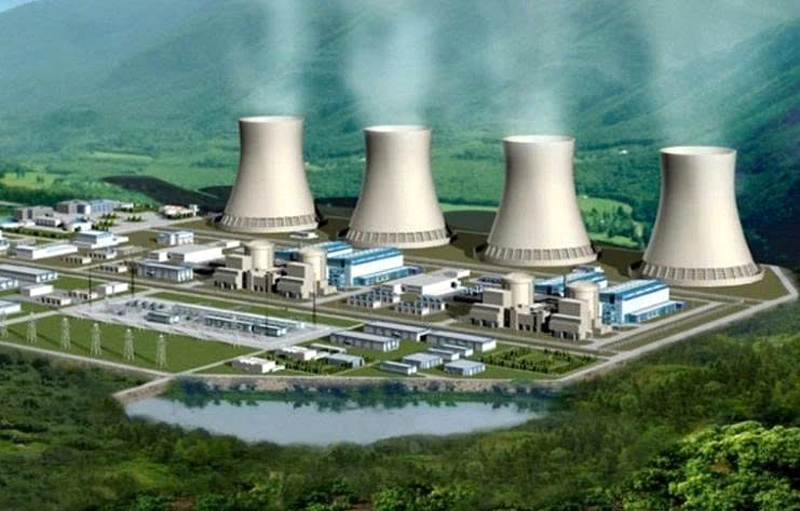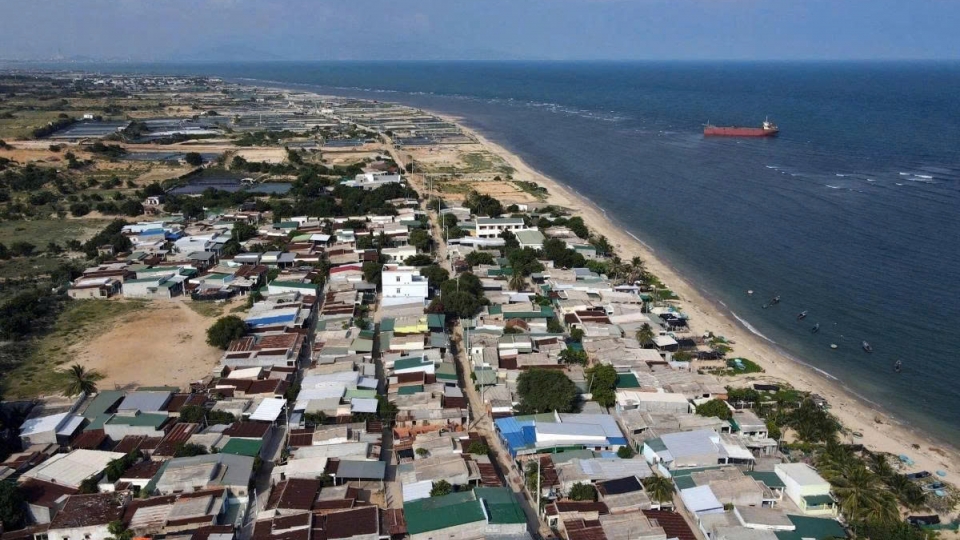Politburo urges urgent resumption of Ninh Thuan nuclear power projects
VOV.VN - The politburo has recently released a resolution on ensuring national energy security through 2030 with a vision to 2045 that emphasises the urgent resumption of the Ninh Thuan 1 and Ninh Thuan 2 nuclear power projects to be commissioned during the 2030–2035 period.

Resolution No. 70, signed by Party General Secretary To Lam on August 20, says ensuring national energy security is a fundamental prerequisite for national development, and an essential pillar of national security to support Vietnam’s dual strategic goals for 2030 and 2045.
Energy development must “lead one step ahead” to adequately meet the demand of socio-economic development, national defence, and improved quality of life. Energy policy must align with Vietnam’s socialist-oriented market economy, support social equity and welfare, and protect the environment, while flexibly adhering to international commitments on emissions reduction.
The Politburo calls for a comprehensive, transparent, and competitive energy market, with diversified ownership and business models. Energy prices must reflect market value, with no cross-subsidisation. The private sector is to be encouraged and enabled to participate on an equal footing with state-owned entities, while the state sector maintains a leading role.
Amidst rapidly increasing electricity demand and a projected double-digit economic growth rate, nuclear power is identified as a key component of Vietnam’s future energy mix.
The resolution therefore mandates the expedited implementation of Ninh Thuan 1 and Ninh Thuan 2 nuclear power projects, applying advanced, safe, and economically efficient technologies suitable to Vietnam’s conditions. Partnerships must be carefully selected to align with national interests and prior agreements.
Vietnam is also tasked with developing a flexible nuclear power programme, including small modular reactor (SMR) technologies. The country will invest heavily in nuclear energy research and development, gradually mastering nuclear power technologies, including reactor design and operations.
At the same time, the resolution calls for a balanced and diverse energy mix, prioritising renewable and clean energy, while maintaining reasonable use of domestic fossil fuel resources. A phased reduction in coal-fired power generation is also outlined.
Technological advancement, digital transformation, and innovation are emphasised as key drivers for a modern, resilient energy sector.
By 2030, Vietnam aims to secure national energy supply, providing stable, high-quality, low-emission energy for socio-economic development, defence, and environmental protection. The country seeks to build a smart, synchronised energy infrastructure and a competitive, transparent, and efficient energy market.
By 2045, the vision is to establish a sustainable, technologically advanced energy sector, effectively utilising resources, reducing emissions, and adapting to climate change. The energy infrastructure will be smart, modern, and regionally and globally integrated. The sector’s human resources, technology, and governance capacity are expected to reach levels comparable to advanced industrial nations.
Resolution No. 70 was issued after five years of implementing Resolution No. 55-NQ/TW (dated February 11, 2020), which outlined the national energy development strategy through 2030 with a vision to 2045. Despite recorded gains, the resolution also points out many limitations and weaknesses that need to be addressed. Accordingly, project implementation progress has been slow; institutional and policy frameworks are inadequate; infrastructure lacks synchrony; technological innovation is limited; and energy supply is still heavily dependent on imports.
The electricity market remains underdeveloped, with weak linkages between energy sub-sectors. Pricing policies do not fully reflect market mechanisms, and cross-subsidisation between customer groups continues. In addition, labour productivity and workforce quality in the sector are low.





